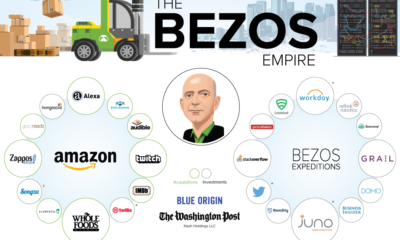Nigeria’s telecommunications industry is experiencing a surge in data center investments as companies strive to accommodate the nation’s rapidly increasing internet consumption.
This move became imperative after a report by the Nigerian Communication Commission (NCC) showed that monthly internet usage has skyrocketed by 502% since 2019.
Monthly internet usage grew from 125,149.86 terabytes (TB) in December 2019 to 753,388.77 TB in March 2024.
This dramatic increase is primarily driven by the growing appetite for streaming services and other online activities, necessitating a robust infrastructure to manage the escalating demand.
MTN Nigeria and Airtel, which together control 66.28% of the country’s mobile subscriber base, are at the forefront of this infrastructure expansion. Both companies have announced substantial investments in new data centers to enhance their service delivery capabilities.
MTN Nigeria’s Expansion
In June, MTN Nigeria unveiled plans to construct a 1,500-rack, Tier 4 data center. According to Mohammed Rufai, MTN’s Chief Technical Officer, this facility will be instrumental in meeting the burgeoning data demands and digital needs of businesses and consumers alike.
“Our facility will provide the space and services needed, enabling companies to digitalize their operations and improve efficiency,” Rufai said.
“With sufficient headroom, we can cater to growth and sudden demand rise, ensuring a seamless experience for our subscribers.”
Airtel’s Groundbreaking Initiative
In March, Airtel broke ground on its first data center in Lagos, marking the beginning of a major investment drive in digital infrastructure.
The Nxtra by Airtel data center will be the first of five hyper-scale data centers to be developed by Airtel Africa. These centers aim to improve the speed of access to digital services and reduce the cost of managing data.
Industry Significance
These investments are poised to significantly enhance Nigeria’s position in the digital economy. Bosun Tijani, the Communications, Innovation, and Digital Economy Minister, emphasized the critical role of data in the country’s economic growth.
“Data is a key driver in our economy. Not only do we need to connect our people, but we also must invest in the digital economy. Through the investment that companies like Airtel have made in our economy, we are fully able to participate in the digital economy,” Tijani said.
Despite these efforts, Nigeria still lags behind other African countries such as South Africa and Kenya in terms of data center capacity. South Africa, for example, has attracted investments from global tech giants like Google, Amazon, Microsoft, and Oracle.
Future Prospects
According to a report by Arizton Advisory and Intelligence, Nigeria’s data center market, valued at $230 million in 2022, is expected to reach $415 million by 2028. Industry experts highlight a significant data center gap, with current infrastructure falling short of the necessary capacity.
Ayotunde Coker, CEO of Open Access Data Centers (OADC), noted, “We do not have enough data centres. Analysis shows we need around 700 data centres but only have about 100. However, we expect significant progress in the next 12 months, with new data centres being launched.”
Economic Impact
The development of new data centers is expected to localize more content from international companies, improving user experience and network efficiency. These investments will also contribute significantly to economic growth, making Lagos a key hub of digital infrastructure on the continent.
“Lagos is going to be the key hub of digital infrastructure in Africa. Right now, South Africa has 50 percent of installed data center capacity, but Lagos is starting to shift in the implementation of digital infrastructure,” Coker added.
With these strategic investments, Nigeria is well on its way to bolstering its digital economy, ensuring it remains competitive in the increasingly data-driven global landscape.


 Billionaire Watch3 weeks ago
Billionaire Watch3 weeks ago




 Startups4 weeks ago
Startups4 weeks ago


 News4 weeks ago
News4 weeks ago


 News4 weeks ago
News4 weeks ago


 Bitcoin4 weeks ago
Bitcoin4 weeks ago
 Naira4 weeks ago
Naira4 weeks ago
 Forex3 weeks ago
Forex3 weeks ago
 Treasury Bills4 weeks ago
Treasury Bills4 weeks ago















